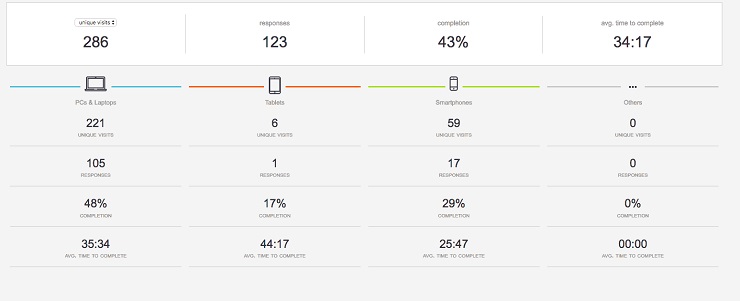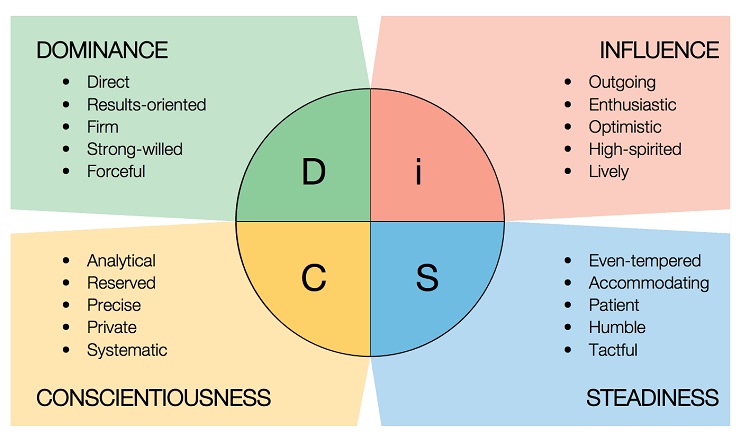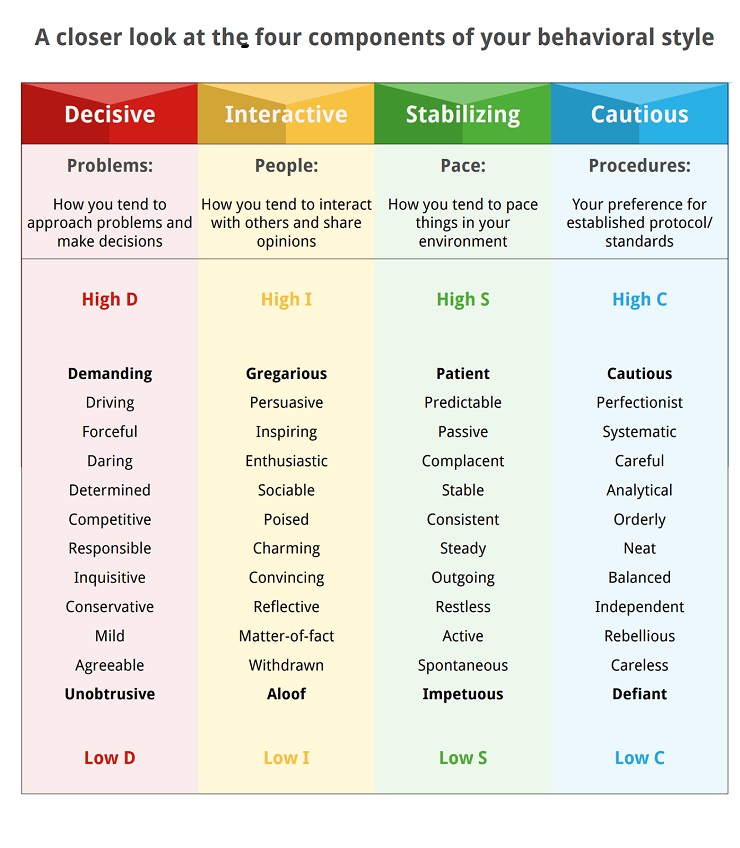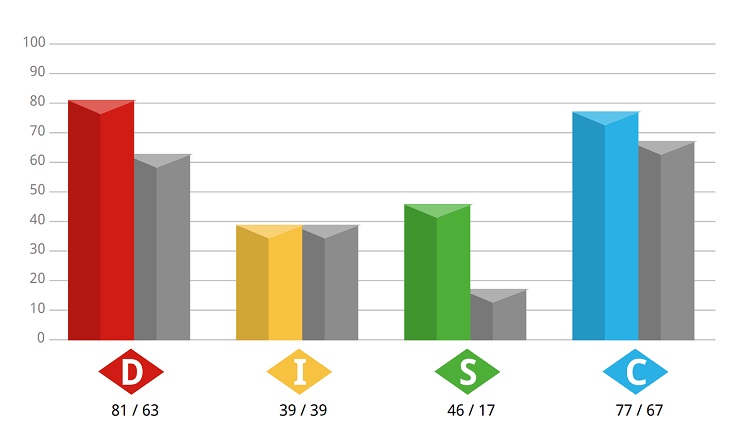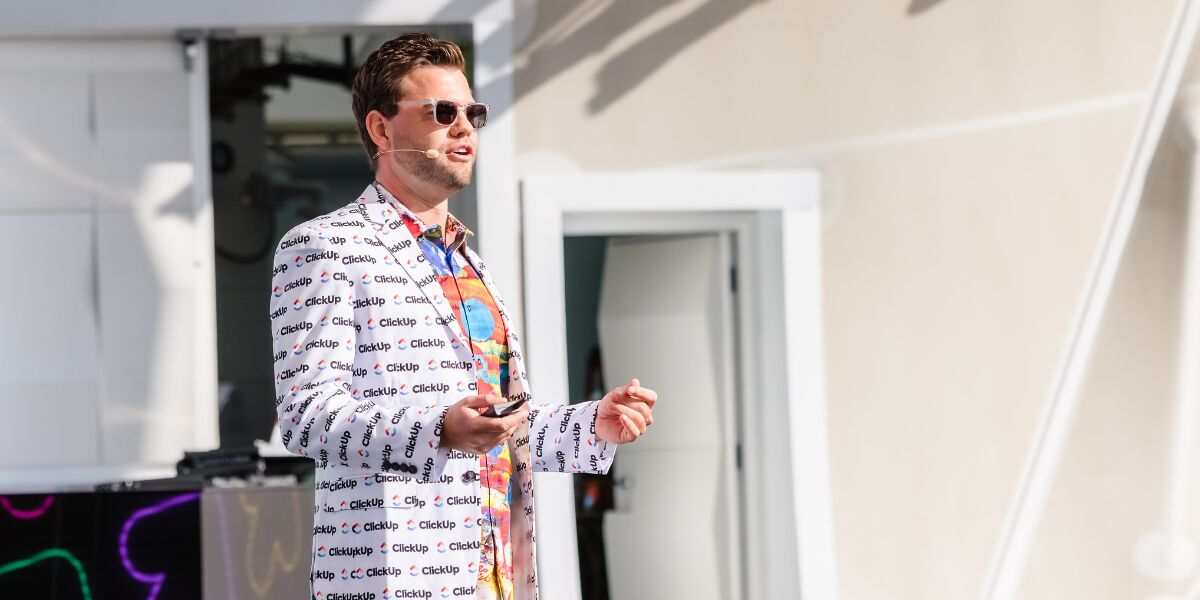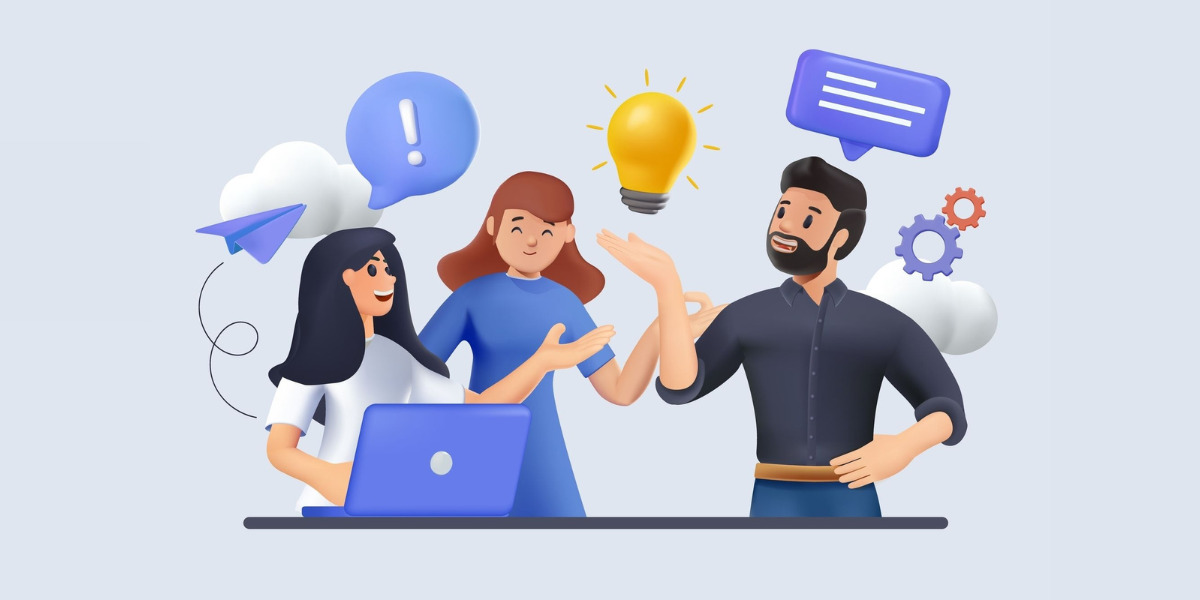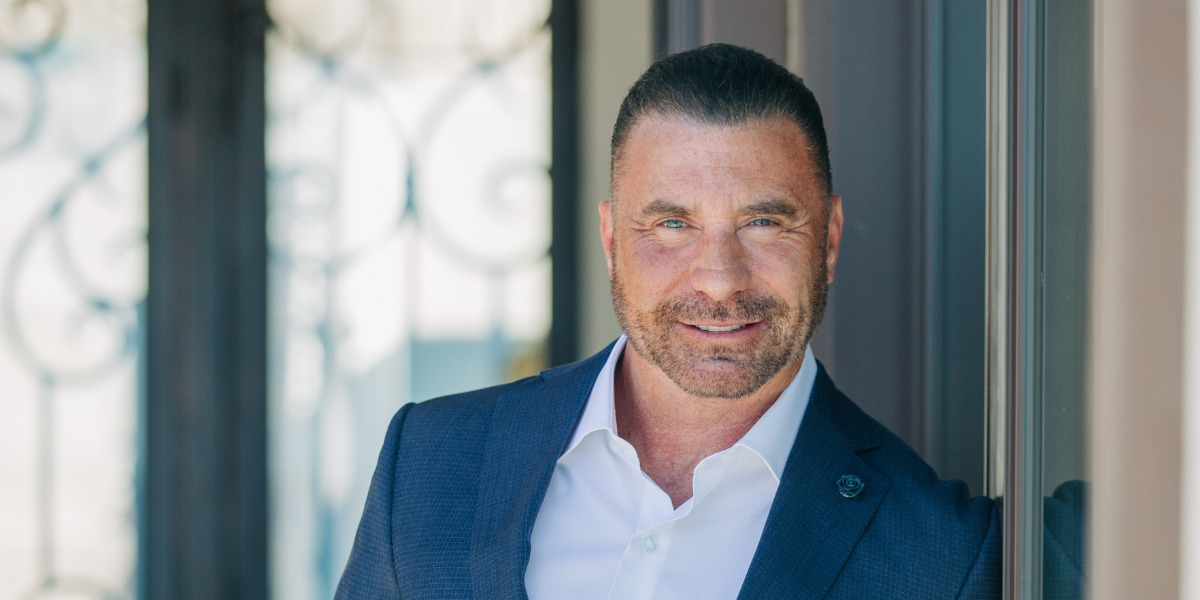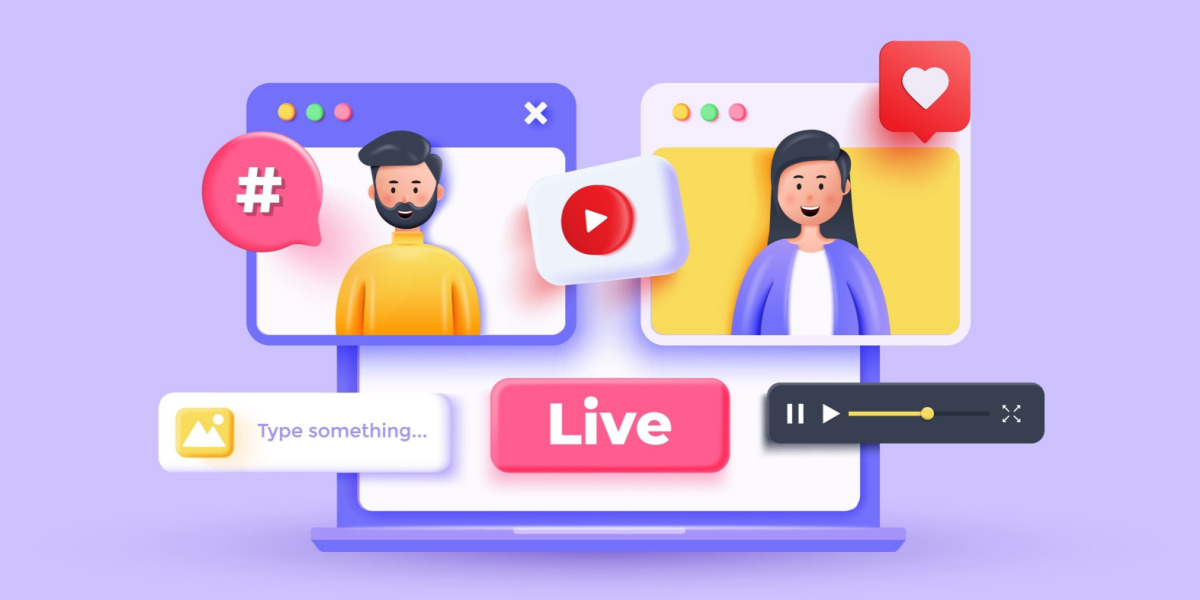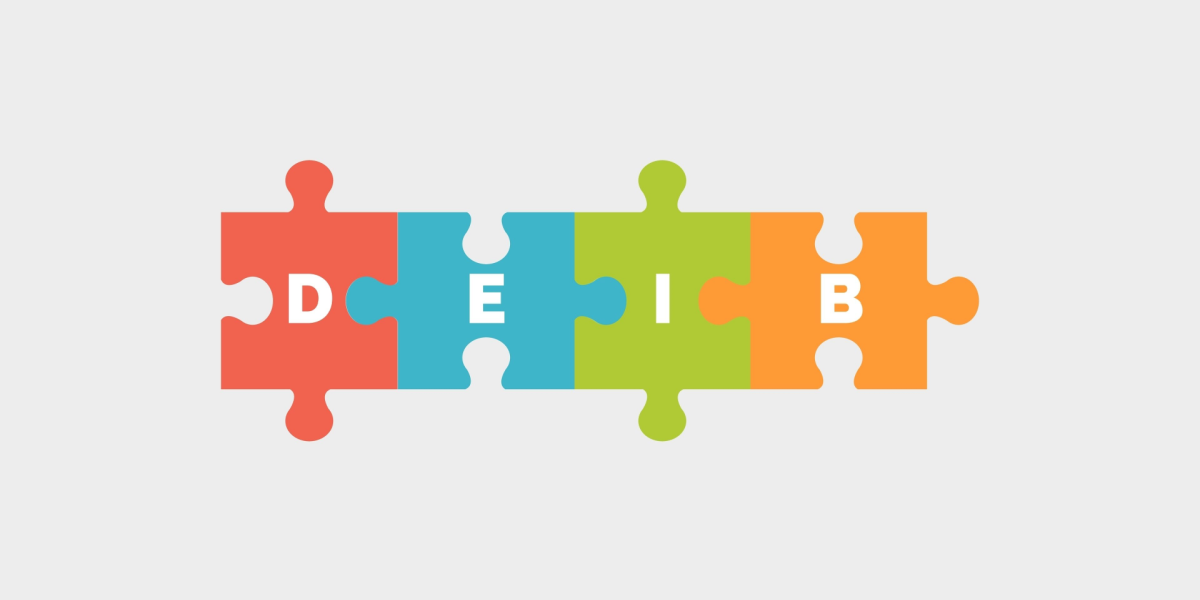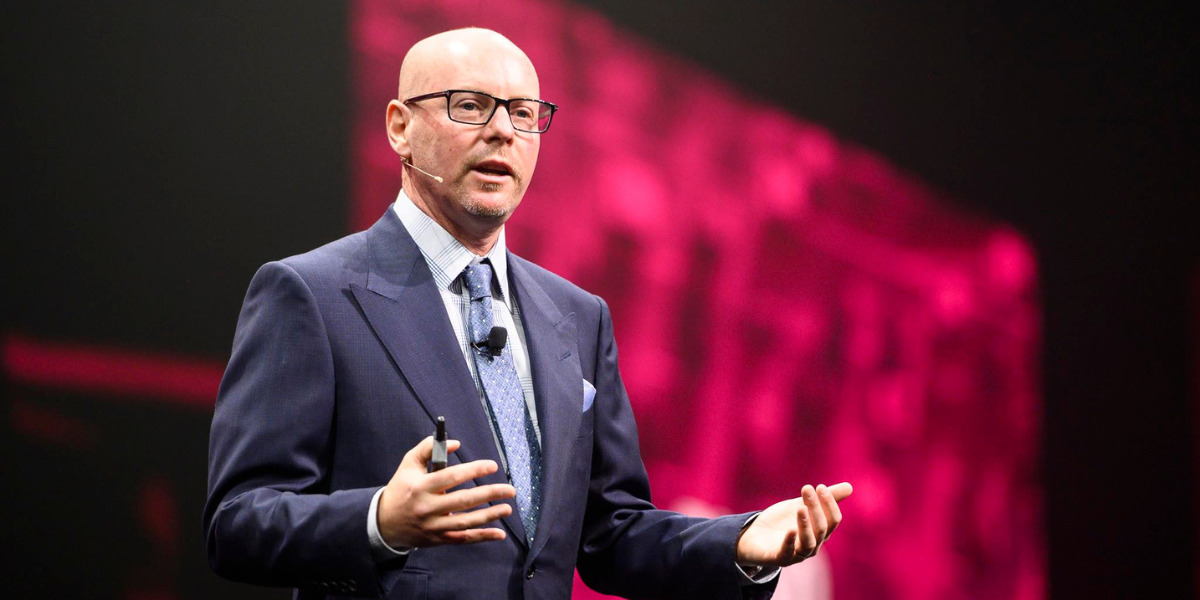One thing that I’ve found extremely important in the past four years of growing Foundr is just how important it is to have amazing talent working at your startup. It’s crucial that you get the right people on the bus and hire A-players, especially in the beginning stages.
As the late Steve Jobs told Walter Isaacson:
I’ve learned over the years that, when you have really good people, you don’t have to baby them. By expecting them to do great things, you can get them to do great things. The original Mac team taught me that A-plus players like to work together, and they don’t like it if you tolerate B-grade work.
Steve know’s what’s up!
Many people believe that, besides having an amazing product or service, this is the ultimate competitive advantage when it comes to building a successful business—having a great team full of A-players.
That probably leaves you asking yourself, how exactly do you hire A-players? This is an especially tough question when you’re just starting out and your business doesn’t have a ton of money or clout.
In this article, with full transparency, I’ll be sharing with you the proven formula that we’ve used at Foundr to build our current team of 10 A-players.
I want to give credit where it’s due to one of my mentors, Mitch Harper, co-founder of BigCommerce, who taught me many of these powerful strategies. And to be perfectly clear, recruitment techniques are always evolving, so this formula probably won’t last forever.
But if you’re reading this article, even if you’re thinking you don’t feel ready to make your first hire, or if you’re on your 30th hire, I think the concepts I’m about to unpack here will be super valuable to you. And as always, I hope you’ll let us know what’s worked and not worked for you in the comments below.
3 Big Questions to Consider When Hiring New Staff
Before we get into our hiring process, there are some tough questions everyone has to wrestle with before jumping into the hiring process. The answers will vary by your specific circumstance, but here’s what I’ve learned when it comes to these common sticking points.
How Do You Know When You’re Ready to Hire?
This is a huge question that many startup founders struggle with, especially in the early stages. Put simply, the way to know when you’re ready to hire someone is when you or your team has a massive pain point in delivering your product’s promises, or marketing services, or anything that keeps the business running or growing.
You’ll just feel it from within the operations of your business that you have an extremely weak link, or something isn’t moving fast enough, or perhaps you find yourself personally doing something you shouldn’t be doing.
One trick I’ve picked up when deciding whether to hire is that you have to always have a pretty strong understanding of what is required within a role you are creating. You might not know the exact day to day, but you must have a strong idea and vision of what is required to be successful in that role—the purpose of that role and how it’s going to impact the bottom line within your business.
Remember, hiring staff is expensive, so if you are going to hire someone, you need to make sure that you can effectively cover the cost of hiring that person and still generate a profit.
Should You Hire Contractors or Full-Time Staff?
This is a tricky one, and it’s a question that gets kicked around a lot. I’ve found from experience that you might want to test hiring a contractor first, depending on the role, and considering how difficult it is to fill.
At Foundr, for example, it’s very difficult for us to hire great conversion rate optimization specialists. So we used contractors until we found the right specialist who could join us full-time here in Melbourne. It really depends on what the role requires. If you’re looking for design work, it might make sense to hire a designer as a contractor, because you might not have enough work for them to fully come on board.
Should You Hire Locally or Remotely?
Think of it like this—do you want to build an amazing company culture and a long-term brand? Or do you want to run a lifestyle business? What are your company’s core values? Can your business be run effectively with everyone online?
What I’ve found from experience is you either go all or nothing. What does that mean? You either hire everyone as online workers, or everyone in the office. I’ve tried doing hybrid with some people in the office here in Melbourne and some overseas, and in terms of speed and team culture, I’ve found it very difficult.
I believe you can have a team based in head offices in multiple locations, and I also believe you can have all your team locally with some contractors online, but the contractors’ roles have to be extremely refined and autonomous, and shouldn’t relate so much to the culture of the company or team building, etc.
The Kind of A-players We Look for to Work at Foundr
OK, let’s say you now know you’re ready to hire. I’ve found that it’s so important to first understand exactly what you want in an employee. If you don’t know that from the start, you might as well be fishing with dynamite—you’ll have no precision or direction to your recruitment efforts. That goes for the type of skills and traits you need, to the caliber of employee you require.
The kind of people we look to hire at Foundr, who we consider A-players, must have the following traits:
- Entrepreneurial: We’re looking for someone who has developed and run their own business before, and perhaps failed, so they have experience with what it takes to at least step outside their comfort zone and what is involved in running a business. I also find that kind of experience tends to breed a good level of ownership when someone is taking responsibility in a role. If you have the courage to start your own business or project, this also means that you have a strong sense of entrepreneurship, taking risks, thinking outside the box, and problem solving. This is what we strive to do everyday at Foundr.
- Aligns with Foundr’s values: We want to hire someone who is compatible with our values at Foundr, because our core company values reflect our culture and our beliefs. We just came up with these 4 core values this year—Determined to Deliver, Learn & Be Curious, Think Big, Teamwork & Integrity. I didn’t realize the importance of establishing values until recently. They shape absolutely everything within your company, essentially acting as the operating system that you live by. Your values should be a reflection of how you as a founder or your co-founders view the world.
- Passionate: We want someone who takes pride in their work. That means we look at what past work or progress a candidate has done in the past, what they’re passionate about, and what makes them extremely proud.
- Independent: Foundr wants team members who don’t need to be micromanaged and can work autonomously. When you’re running a growing startup, especially if you have a largely remote or international team, the last thing you want to be doing is holding people’s hands.
- Hungry to learn: We want people who love to learn, and in their spare time are into personal development—reading books, listening to podcasts, reading blog posts, etc.)—because if somebody loves learning, they will be able to develop and grow into a role.
- Experienced: Finally, a big trait we want to see (depending on the role) is the level of experience that person can bring. It’s extremely desirable that they have crushed it in a similar role before, so they have experience to draw from. The less training you have to do with this person to perform at a high level in the role, the better. Now don’t get me wrong, we’re very big on up-skilling our team at Foundr, and one of our values is “learn and be curious.” However I’ve found from experience that your life is much easier if someone can hit the ground running in a position inside your company.
By hiring an A-player, your goal is the ability to be able to constantly give them problems to solve, or a task, and be able to say, “Hey I don’t know how to do this, but I need you to work it out. Go!” Then you want that person to go forth and do it without much help needed. Because at startups everything is unknown, it’s impossible for everyone to know the answers, so you need people that work things out quickly and problem solve constantly.
This is the exact kind of person we’re looking to join us at Foundr. Someone who is self motivated, doesn’t need to be micromanaged, takes extreme pride in their work, and takes 100% ownership over their targets and performance. Next up, how we find the right people.
Our Battle-Tested Hiring Process, Step by Step
It took us a while to hammer this out, but we’re now super pleased with the process we’ve established to find, vet, and hire A-players. Here’s exactly what we do at Foundr:
Stage 1: The Application Form/Filtering Process
First, you have to get the right people interested in the job. This could mean posting the job on an advertisement site, using a recruitment agency, or simply asking around in your network.
One thing that I’ve found is extremely important is using an application form, which will filter out very quickly how interested someone is in the role by the depth of how they answer the questions.
For our community manager role, for example, our application had an average time to complete of 25 minutes, based on 123 applications filled out. If someone is taking that amount of time to fill out an application form, you can be reasonably sure they are actually interested in your particular job, and not just looking for any job.
The tool we use for this is Typeform, and here are some examples of a couple more unorthodox questions we might ask, although note that this totally depends on the role.
Do you listen to any podcasts? If so what are your favorites?
This question allows us to identify how interested they are in the marketplace we serve, and how passionate they are about entrepreneurship, as well as their level of personal inquisitiveness.
Can you describe an average weekend for you?
This question allows us to understand a little more about the person, in a way that goes much deeper than their LinkedIn profile, resume, or cover letter.
Stage 2: The Skype Interview
Now we’re on to the shortlisting stage. At this point, we choose 5-7 applicants to interview out of those who have filled out the application form. These are the people who you’ve picked up a good impression from about from their LinkedIn profile, their answers to the questions in the application form, and past experience.
Try to treat this interview pretty casually. It’s just a short 15-20 minute chat that we do on Skype. From this, you can really gauge reasonably quickly if this person will be a good fit for the role you’re looking to fill, and it also gives the applicants a great opportunity to understand if the role is a good fit for them. Remember, an interview is a two-way street. As much as you want an A-player to join your team, you have to ensure that it’s the right fit for them culturally and in terms of the work you want them to be doing.
One thing I’m very big on, and I’m super proud about, is that I can confidently say anyone who works at Foundr ends up doing their best work of the career. This is important to me, because we’re looking for ambitious people who want to build on their past work. Some people just want a job. I’ve found from experience that A-players don’t have any problems getting jobs, so they like to pick and choose the best roles. You want to offer someone a job that will allow them to thrive, and it’s important to communicate that.
Stage 3: The In-Person Interview
Once you’ve completed the 15-20 minute, casual chat with each applicant that you’ve shortlisted, the next stage is to choose 2-3 people to come in for face-to-face interviews, and to meet you and/or some members of your team. If you do have other members in your team, I think it’s super important to involve them in the hiring process, especially if you’re a small team. In a small team, everyone works pretty closely together, and one thing I’ve also identified is that A-players like to work with other A-players. So it’s important that you have input from the rest of the team here as well.
What you should aim to achieve in the face-to-face interview is to really get a feel for what the person is like, their experience, if it’s a good cultural fit, and see how they carry themselves.
You can ask some tougher questions here if you like. For example: “Tell me something that you’ve never told anyone before?” or “What book are you reading right now?” This helps you see how a person thinks on their feet, but it really just depends on your style or preference. You’re just trying to get to know the person better at this stage, and again, it’s a great opportunity for the applicant to get a feel for your working environment, culture, and team.
Stage 4: The Practical Test
OK, this is the final stage of our hiring process, and it’s probably the most important stage of them all. This is the stage that I really wish I knew more about when hiring, and wish I had included when hiring in the early days.
It consists of choosing 1-3 of the remaining applicants to complete a practical test of some sort. This practical test will really make apparent that person’s talents and abilities, and will give a strong indication of how they will perform in the role if they get the job. Give a tight but reasonable timeline, perhaps 2-3 days with a deadline and a clear deliverable.
It’s always really interesting to see how people perform in this stage, because sometimes applicants can bluff on their applications or during an interview, but they can’t bluff in a practical test.
Here’s an example of a test that we gave one of our latest hires, Julius. His role will be to assist with developing sales funnels, which is quite a technical role. So the test that Jesse and David, members of our team, gave him and another candidate was to develop a landing page on Clickfunnels with testimonials and an opt-in form, based on a template we provided as a reference point. From there we could gauge how fast someone could learn using a new software tool—because we use over 50 SaaS tools to run Foundr—but also how fast this person can think on their feet.
Note that for this practical test, it’s a show of goodwill to pay that person for their time or give them something in the way of compensation (perhaps your product for free or something else of value). The amount of time spent once you get to this stage can be lengthy, so you want to show appreciation for someone going this far through your hiring process. It’s a bad look to ask someone to work for free, and even if you don’t end up hiring a person, you want to leave them with a positive impression of you and your company. It’s just a good, respectful practice, and one that Mitch Harper from BigCommerce taught me.
Stage 5 (Optional): The DISC Profile
One thing we also like to do during this final stage is to ask each applicant to complete a DISC profiling test. The DISC profile is a personality profile that is non-judgmental and used to identify people’s behavioral differences. Here’s a quick overview of what each letter means in the DISC acronym.
Dominance – Person puts emphasis on accomplishing results, the bottom line, and confidence.
Influence – Person places emphasis on influencing or persuading others, openness, and relationships
Steadiness – Person places emphasis on cooperation, sincerity, dependability
Conscientiousness – Person places emphasis on quality, accuracy, expertise, competency
Below is an example DISC assessment from a previous candidate we interviewed for a role.
For this role we were looking for someone who was extremely analytical, had a strong attention to detail (high C), and was extremely results oriented (high D). Using DISC profiling, we got a really strong insight into the personality type of the candidate. We found it extremely helpful.
Final Decision: Choosing That Person
At this point, you should have a decent idea if any of the remaining applicants are a strong fit for the role. How do you know for sure if you’ve got the right candidate? I believe there are two big things to rely on in the end—always follow your gut, and look closely at the test project.
Remember, if you don’t find the right person, don’t be afraid to go back to the drawing board. This is extremely critical. You want to find the right person, and it’s super important that you don’t settle for someone who isn’t the best fit, just because you’re in a hurry or you don’t feel like going through the steps again.
Something else my mentor taught me is the concept of “hiring slow, and firing fast.” Remember, you can always put contingencies in place and be sure you have a three-month probation.
When you hire A-players, you can’t get it right all the time, but I think this process will increase your chances drastically.
Conclusion
Once again, recruitment is an ever-changing landscape, as are workplace and employment trends. So this exact formula may not be the one that works for you, beginning to end. But I strongly believe these principles will steer you right as you’re growing your business, in any circumstance or market.
If there’s one thing I’d leave you with it’s this—don’t rush hiring, whether it’s the decision to make your first hire or actually going through the process. In some ways, your team will be more important than any other element of your business. Consider that, even if you were to scrap your entire idea and start from scratch (as many startups have!), if you have a solid core group of A-players, you can still thrive.
Get it right, follow your gut, have patience, and watch your crew elevate your business to the next level!
Have any comments, or questions about hiring and how we’ve grown our team at Foundr? Hit me up in the comments and I’ll let you know!

